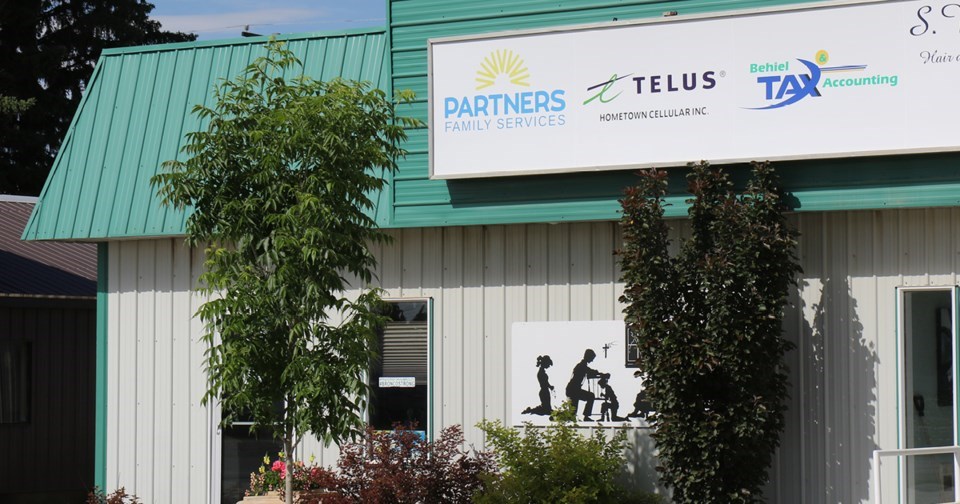HUMBOLDT — Hayley Kennedy, with Partners Family Services, said that the last two years of the pandemic has resulted in increased demands for mental health and addictions services locally, across the province and across the country.
Partners Family Service, in operation since 2001, provides counselling, sexual and domestic violence services, in-home family supports, parenting programs, education, and crisis response at no fee to anyone seeking help.
“We want our community to know that we’re here as we have been for over 20 years,” Kennedy said. “We will continue to be here and work with our partners locally, regionally, provincially and nationally to continue to do our best to deliver comprehensive mental health and addictions support to the best of our abilities.”
Kennedy attributed the challenges to soaring caseloads, complexity of issues and the additional stressors of the COVID 19 pandemic.
This comes as over the past number of weeks, there has been increasing dialogue throughout Humboldt regarding mental health, addictions and houselessness supports within the region.
Michael Behiel, Humboldt’s mayor, has said on Jan. 24 that he has met with MLA Donna Harpauer about obtaining additional supports for residents in Humboldt.
Along with the meeting with Harpauer, a letter was sent from Everett Hindley, minister of mental health and addictions, seniors and rural and remote health, detailing what services they do have available dated Jan. 20. The letter was submitted publicly to council at their Jan. 24 meeting.
“These are issues our office sees daily, and we are grateful to those that recognize these are areas of concern for all of our community members and especially our most vulnerable people,” Kennedy said.
“These conversations are difficult and necessary, and not as simple as they may appear. There is no single ‘fix’ for the issues vulnerable people face in our communities, or across the province. With every additional support or program that may be funded, there is additional infrastructure that must also be in place to support those services.”
For example, Kennedy said that while addictions treatment beds are important, it has to come with access to primary health care, mental health care, education and employment opportunities.
“Mental health group home beds are vital to the successful transition of those with pervasive mental illness into community – and they must be well supported with appropriate specialized health care teams and community vocational programs. Without these additional pieces in place, treatment or residential services are not able to fully meet the needs of those who access them.”
In the letter from Hindley, the minister made reference to the province funding Partners Family Services. According to Kennedy, while they do receive funding from the ministry, the province’s funding doesn’t cover mental health or houseless supports.
“Very specifically the Government of Saskatchewan provides us funding to deliver in-home family support, parenting programs, education and domestic violence services,” Kennedy said. “Through additional partnerships we do provide rapid access counselling but the Government of Saskatchewan does not provide us with any funding specific to addictions or housing or homeless issues.”
Kennedy said that while they are fortunate to receive significant funding for their services, they still struggle to meet the needs of crisis clients with only a single, half-time position dedicated to crisis response. This includes those experiencing domestic violence, insecure housing and acute mental health crisis.
According to the Centre for Addiction and Mental Health’s latest survey data, which in intervals from 2020 to 2022, over 25 per cent of Canadian adults report struggling with their mental health in some way. More than one quarter reported engaging in substance use.
The Mental Health Commission of Canada’s report on COVID-19 and homelessness highlights that those who are insecurely housed or rely on shelters and transitional housing are facing additional challenges.
“We do our best to work in collaboration with our partners, and we recognize there is still more to be done,” Kennedy said.
“The needs of those experiencing crisis due to mental health or addictions are complex and there is no single way to serve them. Poverty, colonization and intergenerational trauma are just a few of the factors that impact each individual and family and must be addressed holistically to account for an individual’s unique history.”
For more information on Partners Family Services, including how to access their programs and services, community members are asked to visit partnersfamilyservices.ca.





